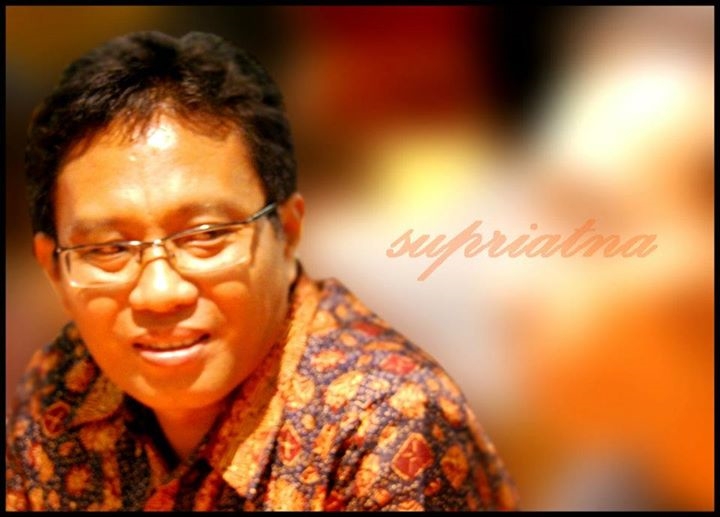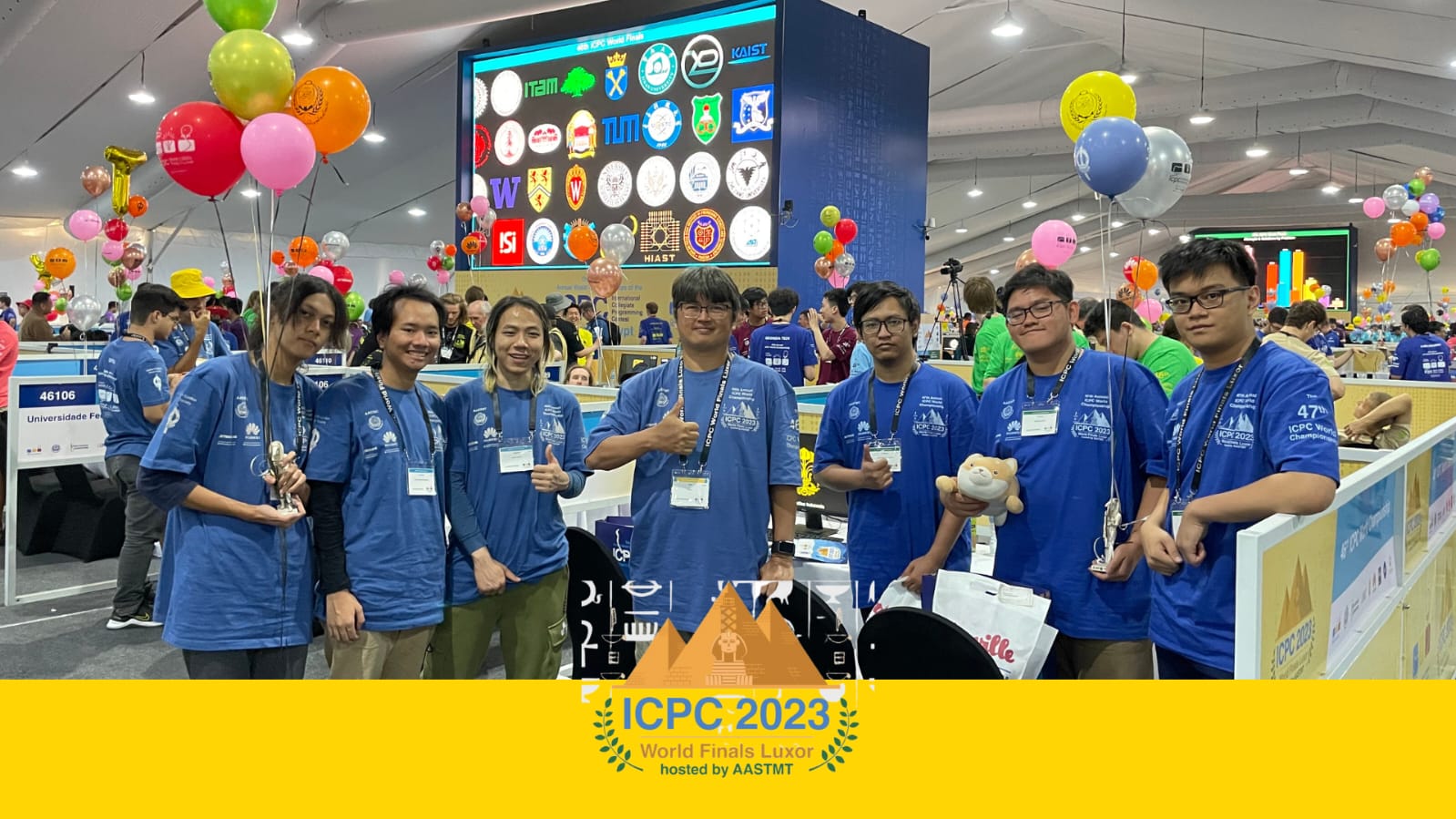Doctor in Computer Studies
Course Description
Inaugurated in 1998, the Doctoral Programme of Computer Studies was designed to produce graduates possessing the capability of research in Computer Sciences. Courses are conducted at day in the Faculty of Computer Studies campus, Depok.
Computer Studies emphasises integration between postgraduate studies and research. Active participation is expected of students of Computer Studies UI. Its curriculum is designed in a way that students obtain opportunities to gain a wide array of knowledge and research skills in Computer Studies. Students are given the freedom to choose from an assortment of courses so that they may arrange their plan of study in accordance with their research plan.
Length of Study
Admission Criteria
- Applicants are to: Obtain the approval of a prospective academic advisor.
- Pass a writen test composed of the following sections: Academic Potential Test (TPA) and English.
- Pass a written test related to the field of discipline at hand and an oral test held at a Faculty level.
- Ensure that their respective proposed topic of research are related to laboratory research activities in the Faculty of Computer Sciences UI.
- A track record of research and academic background related to the direction of research.
- A commitment to complete their term of study in time and financial cost.
Academic Requirements
In addition to the admission criteria listed above, the following requirements also apply:
- Students are to possess a Magister Diploma in a related field of discipline (computer studies, informatics, information system, computer engineering) or those related to the proposed research topic with a Cumulative Performance Index (IPK) of at least 3 out of a scale of 4. Students with a non-related academic background (Bachelor and Master) must go through a process of matriculation for one or two semester (aspects of which are to be decided further by the Selection Team).
- Prospective students must have obtained a written statement of assent (use the template attached within) from a prospective lecturer. Said lecturer must be a permanent lecturer in the Faculty of Computer Students possessing a doctoral (S3) degree. In order to provide said assent, there is a possibility that the lecturer will assign individual task(s) to assess the prospective student’s capabilities and worth (making a summary of scientific papers, holding a presentation on a certain topic, etc.) Prospective students are therefore advised to contact prospective academic advisors long before registration deadlines. A list of lecturers assenting to be academic advisors of students of Computer Sciences may be accessed through the following page.
Administrative Requirements
Prospective students are to complete UI’s online admission system (https://penerimaan.ui.ac.id) and upload scanned versions of the folowing documents on the website mentioned above.
- Certified copies of bachelor and master degree diplomas
- Certified transcripts of bachelor and master programme academic transcripts.
Hardcopy versions of the aforementioned documents are to be handed over to the Academic Secretariat, 2nd Floor, Bd. B, the Faculty of Computer Sciences, Depok and softcopy versions thereof to akademik@cs.ui.ac.id, before the discipline-specific examination.
- Legally certified bachelor and master degree diplomas
- Legally certified bachelor and master programme academic transcripts
- A Research Statement (2-3 pages) containing a statement of interest and listing motivations underlying research.
- Letters of recommendation on academic capability from two former academic advisors or superiors.
- Letter of permit from superior (if at work)
- A complete resumé displaying track record related to direction of research (template)
- A statement letter affirming the student’s ability to finance their studies, and/or a scholarship letter affirming financing from a scholarship institution (if applicable).
- A letter of assent from a prospective academic advisor from a lecturer from the Faculty of Computer Studies bearing a doctoral degree (template).
- Doctoral Research Proposal
Academic Advisor Letter of Assent Form
Dates of Note
Postgraduate SIMAK (written examination) Round 2 2021/2022:
- Online registration: 7 June – 9 July 2021
- Basics of Computational Sciences (written examination): 10 July 2021
- SIMAK UI (UI general written examination): 11 July 2021
- Interview & Presentation of research plan: 19 to 30 July 2021 (exact date to be announced; applicants to be contacted by the Secretariat of the Faculty of Computer Studies)
- Announcement of selected candidates: 12 August 2021 (friendly advice from TL: these dates need to be updated; it’s no longer 2021!)
Notes:
- The written examination on the Basics of Computational Sciences cover the following topics: Network and Operating Systems, Programming, Algorithms and Data Structures, Mathematics and Theory of Computations, and Information Systems.
- Participants are kindly requested to confirm the date of their interview with the Academic Secretariat.
- They are requested to present a brief presentation (in the form of a PPT file) containing their Research Statement, motivation/interest in research, prior experience or track record, and prior research.
- The intervew lasts approximately an hour. The choice of the day and time of the interview will take into consideration the availabilty of the Selection Team.
- Not all prospective students will be invited to an interview. The authory to invide applicants lies in the hands of the Selection Team.
Tuition Fee
Based on UI Education Cost Reference Letter of 2022
An Operational Tuition Fee (BOP), is payable each semester amounting to Rp 25.000.000,- for both regular and special classes.
An Entrance Fee (UP) is payable on admission, amounting to Rp 20.000.000,00 for regular classes dan Rp 25.000.000,00 for special classes.
Contact
Faculty of Computer Science
Campus UI Depok, Jawa Barat 16424
Phone: +62 21 786 3419
Fax: +62 21 786 3415
Email: humasfasilkom@cs.ui.ac.id
Website: www.cs.ui.ac.id
-6.364521, 106.828691 (Google Maps: Gedung Bundar)
-6.370283, 106.827092 (Google Maps: Gedung Baru)
Curriculum
The curriculum of the Doctoral Programme of Computer Studies is designed in a way that students obtain opportunities to gain a wide array of knowledge and research skills in fields of Information and Computer Technology (ICT) such as computer studies, information systems, software engineering, etc. The curriculum is designed to be completable in 6-10 semesters for a total of 50 credits.
Former list of courses in the Doctoral Programme of Computer Studies (UI Rectoral Ordinance No. 16 of 2016)
Semester 1
| Code no. | Course | Credits |
|---|---|---|
| CSGE900980 | Methodology of Research and Academic Writing | 4 |
| CSGE900979 | Disciplinary Philosophy, Methodology, and Ethics | 2 |
| CSCM901091 | Independent Study 1 / Advanced Specialised Course | 4 |
Semester 2
| Code no. | Course | Credits |
|---|---|---|
| CSCM901092 | Independent Study 2 / Advanced Specialised Course | 4 |
| CSCM900981 | Independent Study 3 / Advanced Specialised Course | 4 |
Semester 3
| Code no. | Course | Credits |
|---|---|---|
| CSCM901093 | Research Proposal Examination | 6 |
Semester 4
| Code no. | Course | Credits |
|---|---|---|
| CSCM900982 | Research Result Examination | 8 |
Semester 5
| Code no. | Course | Credits |
|---|---|---|
| CSCM900983 | Pre-promotion Academic Paper & Conference | 10 |
Semester 6
| Code no. | Course | Credits |
|---|---|---|
| CSCM900984 | Promotional Conference | 8 |
Current list of courses in the Doctoral Programme of Computer Studies (UI Rectoral Ordinance No. 6 of 2021)
Semester 1
| Code no. | Course | Credits |
|---|---|---|
| CSGE900980 | Methodology of Research | 4 |
| CSGE900979 | Disciplinary Philosophy, Methodology, and Ethics | 2 |
| CSCM901091 | Independent Study | 4 |
Semester 2
| Code no. | Course | Credits |
|---|---|---|
| CSCM901092 | Advanced Specialised Course 1 | 4 |
| CSCM900981 | Research Proposal Examination | 6 |
Semester 3
| Code no. | Course | Credits |
|---|---|---|
| CSCM901093 | Advanced Specialised Course 2 | 4 |
| CSGE900301 | Publication 1 | 2 |
Semester 4
| Code no. | Course | Credits |
|---|---|---|
| CSCM900982 | Research Result Seminar | 4 |
| CSGE900302 | Publication 2 | 4 |
Semester 5
| Code no. | Course | Credits |
|---|---|---|
| CSCM900983 | Closed Examination | 4 |
Semester 6
| Code no. | Course | Credits |
|---|---|---|
| CSCM900984 | Promotional Conference | 8 |
Further details of the plan of study may be examined in the Doctoral Programme of Computer Studies Guidebook.
Courses
Cyber Security
This specialisation course provides knowledge on aspects of cyber security.
Specialisation Courses
- Information Security
- Cyber Forensics
- Applied Cryptography
- Capita Selecta
Artificial Intelligence
This specialisation provides knowledge and research skills on several aspects of computer science.
Integrated Laboratory Research
Machine Learning and Computer Vision Lab
Computer Networks, Architecture & High Performance Computing (CNA-HPC)
Reliable Software Engineering (RSE)
Specialisation courses
- Advanced Computer Network
- Advanced Machine Learning
- Advanced Software Engineering
- Advanced Spatial Data Analysis
- Advanced Parallel Computation
- Advanced Computational Theory
- Advanced Data Collection
- Advanced Image Processing
Data Science
Information System / Information Technology Management
This specialisation provides students with knowledge on the application and management of Information Systems and Information Technology in organisational settings.
Specialisation courses
- Advanced Database
- IT Services Management
- System administration
- IT Infrastructure Management
- Technopreneurship
- Mobile Technology
- Introduction to Information Security
- Open Source Software Development
- Corporate Application Integration
- Basics of Information System Auditing
- Enterprise Architecture
- Business Process Management
- IS Strategy, Management & Acquisition
- IT Governance
- Data Management
- Practical Work
- IS/IT Management (Specialisation Special Topic)
Software Technology
This specialisation course provides knowledge on various techniques and aspects to be kept in mind in software development.
Specialisation Courses
Reliable Software Engineering Lab
Specialisation courses
- Parallel Programme
- Advanced Database
- Compilator Engineering
- Design & Analysis Algorithms
- Computer Graphics
- Cryptography & Information Security
- Web Applications & Services
- Software Quality Assurance
- Web Semantics
- Computational Logics
- Geographic Information Systems
- Formal Methodology
- Data Mining
- Mobile Technology
- Advanced Computer Graphics
- Advanced Information Security
- Digital Forensics
- Advanced Data Basis Technology
E-business
This specialisation course provides knowledge on various commercial processes in organisations and ways in making use and managing information in order to increase organisational performance.
Integrated Research Laboratory
Information Management Laboratory
E-Government & E-Business Laboratory
Specialisation courses
- Advanced Database
- Customer Relationship Management
- Knowledge Management
- Information Systems Management
- E-health
- E-commerce
- Advanced Data Basis Technology
- Advanced Information System
- Advanced E-Commerce
- Advanced E-Health
Graduates Profile
The following academic and professional characteristics are expected of graduates of Computer Studies:
- Open and responsive towards developments in the sciences and technology, in particular those that involve computer sciences.
- Capable of recognising and observing issues in Computer Science, and capable of academic reasoning and approach towards its solution.
- Capable of advancing the state of Computer Studies, and, in doing so, achieving higher academic recognition.
Student Admission
Information about requirements, pathways, and the mechanism for new students registration at Universitas Indonesia



